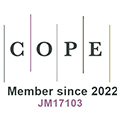REFERENCES
1. Suri S, Jain A, Verma N, Prasertpoj N. SCARA Industrial Automation Robot, 2018 International Conference on Power Energy, Environment and Intelligent Control (PEEIC), 2018; p. 173-77.
2. Song X, Zhao Y, Jin L, Zhang P, Chen C. Dynamic feedforward control in decoupling space for a four-degree-of-freedom parallel robot. International Journal of Advanced Robotic Systems 2019;16:172988141882045.
3. Dang J, Ni F, Liu Y, et al. Control strategy for flexible manipulator based on feedforward compensation and fuzzy-sliding mode control. Journal of Xi'an Jiaotong University 2011;45:75-80.
4. Dao QT, Yamamoto SI. Modified computed torque control of a robotic Orthosis for gait rehabilitation. Annu Int Conf IEEE Eng Med Biol Soc 2018;2018:1719-22.
5. Su Y, Zheng C. A new nonsingular integral terminal sliding mode control for robot manipulators. International Journal of Systems Science 2020;51:1418-28.
6. Wu G, Zhang X, Zhu L, Lin Z, Liu J. Fuzzy sliding mode variable structure control of a high-speed parallel PnP robot. Mechanism and Machine Theory 2021;162:104349.
7. Uchiyama M. Formation of high-speed motion pattern of a mechanical arm by trial. T SICE 1978;14:706-12.
8. Arimoto S, Kawamura S, Miyazaki F. Bettering operation of Robots by learning. J Robotic Syst 1984;1:123-40.
9. Long Y, Du Z, Wang W. An adaptive sliding mode-like P-type iterative learning control for robot manipulators. 2014 14th International Conference on Control, Automation and Systems (ICCAS 2014).
10. Zhao Y, Zhou F, Wang D, et al. Path-tracking of mobile robot using feedback-aided P-type iterative learning control against initial state error. IEEE 2017; doi: 10.1109/ddcls.2017.8068138.
11. Bouakrif F. D-type iterative learning control without resetting condition for robot manipulators. Robotica 2011;29:975-80.
12. Chen Q, Lou Y. Compensated iterative learning control of industrial robots. 2018 IEEE International Conference on Real-time Computing and Robotics (RCAR); 2018. p. 52-7.
13. Ye Y, Tayebi A, Liu X. A unit-gain D-type iterative learning control scheme: application to a 6-dof robot manipulator. IEEE 2007; doi: 10.1109/isic.2007.4450892.
14. Ratcliffe JD, Hätönen JJ, Lewin PL, Rogers E, Harte TJ, Owens DH. P-type iterative learning control for systems that contain resonance. Int J Adapt Control Signal Process 2005;19:769-96.
15. Dong J, He B, Zhang C, Li G. Open-Closed-Loop PD Iterative Learning Control with a Variable Forgetting Factor for a Two-Wheeled Self-Balancing Mobile Robot. Complexity 2019;2019:1-11.
16. Sun Y, Lin H, Li ZA. Open-loop PD-Type Iterative Learning Control for a Class of Nonlinear Systems with Control Delay and Arbitrary Initial Value[J]. Measurement and Control Technology 2010;31:387-92.
17. Zhang L, Chen W, Liu J, Wen C. A robust adaptive iterative learning control for trajectory tracking of permanent-magnet spherical actuator. IEEE Trans Ind Electron 2016;63:291-301.
18. Boudjedir CE, Boukhetala D, Bouri M. Iterative learning control of a parallel delta robot. In: Chadli M, Bououden S, Ziani S, Zelinka I, editors. Advanced Control Engineering Methods in Electrical Engineering Systems. Cham: Springer International Publishing; 2019. p. 72-83.
19. Ma R, Zhang G. Iterative learning tracking control for a class of MIMO nonlinear time-varying systems. International Journal of Modelling Identification and Control 2017; 27(4): 271. Available from: https://www.inderscienceonline.com/doi/pdf/10.1504/IJMIC.2017.084721[Last accessed on 18 Mar 2022].
20. Ouyang P, Zhang W, Gupta MM. An adaptive switching learning control method for trajectory tracking of robot manipulators. Mechatronics 2006;16:51-61.
21. Roveda L, Forgione M, Piga D. Robot control parameters auto-tuning in trajectory tracking applications. Control Engineering Practice 2020;101:104488.
22. Liu S, Meng D, Cheng L, et al. An iterative learning controller for a cable-driven hand rehabilitation robot. IEEE 2017; doi: 10.1109/IECON.2017.8216989.
23. Yang XF, Fan XP, Yang SY, et al. Open and closed loop PD-type iterative learning control of nonlinear system and its application in robots. Journal of Changsha Railway Institute 2002:78-84.









